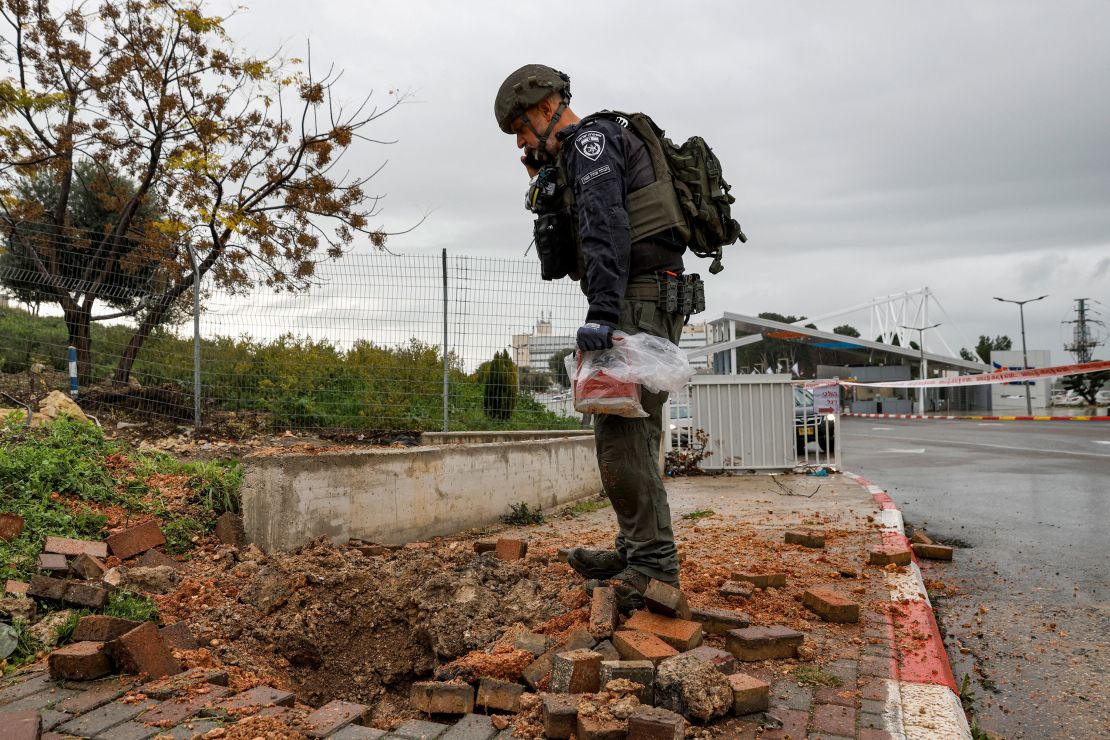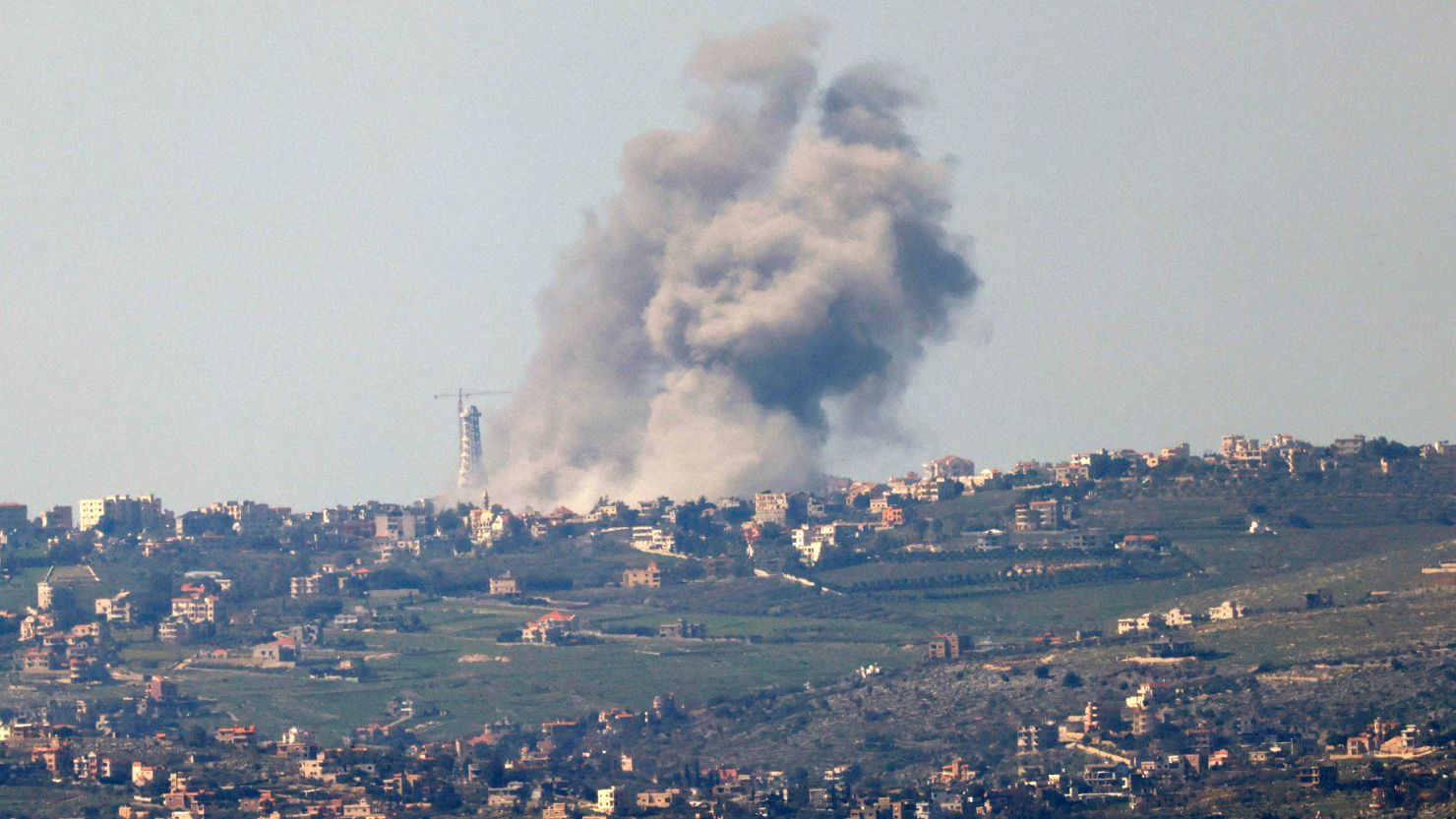American administration and intelligence officials are concerned that Israel is planning a ground incursion into Lebanon that could be launched in the late spring or early summer if diplomatic efforts fail to push Hezbollah back from the northern border with Israel, senior administrations officials and officials familiar with the intelligence say.
While a final Israeli decision has yet to be made, the worry is acute enough inside the Biden administration that the prospect of an incursion has made its way into intelligence briefings for senior administration officials, according to one person who received a briefing and was told an operation could happen early summer.
“We are operating in the assumption that an Israeli military operation is in the coming months,” one senior Biden administration official said. “Not necessarily imminently in the next few weeks but perhaps later this spring. An Israeli military operation is a distinct possibility.”
There have been months of daily, deadly cross-border strikes by both Israel and Hezbollah that have displaced tens of thousands of Lebanese and Israeli residents from their homes. Israel has fired artillery and launched jets and drones to strike targets while Hezbollah has used some of its vast arsenal of rockets and missiles.
While the US is a key mediator in ongoing discussions over a pause in the fighting in Gaza, the Biden administration has also been leading parallel discussions with Israeli and Lebanese officials that if successful would create a miles-wide buffer zone inside southern Lebanon. That deal would likely postpone an Israeli incursion, US officials believe.
“I think what Israel is doing is they are raising this threat in the hope that there will be a negotiated agreement,” said the senior official, who has heard differing opinions within the Israeli government about the need to go into Lebanon.
“Some Israeli officials suggest that it is more of an effort at creating a threat that they can utilize. Others speak of it more as a military necessity that’s going to happen,” the official said.
A second senior Biden administration official said there are elements inside the Israeli government and military in favor of an incursion. There’s “a growing group that says: ‘Hey, let’s just take a shot. Let’s just do it,’” the senior official said, adding that any incursion could lead to a “major, major escalation that we don’t even know the proportions of.”
Some 80,000 Israelis have been displaced from the north since October. In a statement to CNN, the Israeli embassy in Washington wrote, “The State of Israel will not return to the pre-war status quo in which Hezbollah poses a direct and immediate military threat to its security along the Israel-Lebanon border.”
In recent days Israel has been stepping up its air campaign, bombing deeper into Lebanon. Strikes last week came within 27 miles of the capital Beirut, the farthest into Lebanese territory from the border since the violence started immediately following Hamas’ October 7 massacres in Israel.
On Monday, Israel struck the Hezbollah stronghold Baalbek in the northeast of the country.
“There are fears this will grow to an expansive air campaign reaching much further north into populated areas of Lebanon and eventually grow to a ground component as well,” another person familiar with the US intelligence said.
The US intelligence community has been “ringing alarm bells,” the person added.
Israel’s top general visited the northern border Tuesday and said that Hezbollah “must pay a heavy price” for its actions since October 7.
“It’s clear that the first thing we need to do is push back the enemy. Then, create a very strong barrier,” said Lt. Gen. Herzi Halevi.
Shuttle diplomacy
The White House has tapped special envoy Amos Hochstein to lead the efforts aimed at finding a diplomatic solution. Hochstein normally serves as a senior energy advisor and is capitalizing on his experience and relationships having brokered a maritime deal between Israel and Lebanon over gas exploration.

“If Amos were to successfully negotiate a standoff arrangement, then the probability of a military operation later this year would decline considerably,” the first administration official said. If Hezbollah is pushed back about 10 kilometers, that would take out some of the shorter-range munitions they’ve been using against Israel, the official added.
Hochstein has been shuttling regularly to both countries, having discussions that are complicated by the fact that in Lebanon the US does not engage directly with Hezbollah, which is the most powerful military force in the country and considered a terrorist organization by the US.
Israeli strikes in Lebanon have also hit the US-supported Lebanese army so frequently that the administration has told Israel to scale them back.
During a meeting in Israel earlier this month, Hochstein met with Defense Minister Yoav Gallant who said: “We are ready to resolve this crisis via diplomatic understandings, however we are also prepared for any other scenario.”
Israeli officials have acknowledged that a war with Hezbollah would be far more costly and devastating to Israel than the current war with Hamas, given the size and more advanced nature of Hezbollah’s arsenal.
“Israel has been willing to give diplomacy a chance and hope it will succeed,” an Israeli official said to CNN. “If the issue can not be resolved diplomatically, Israel will have to consider alternate means.”
Creating a buffer zone
There are signs of progress in the negotiations on the separate track over a pause in the fighting in Gaza. It’s believed that a break in the fighting in Gaza would lead to a decrease in rocket fire from Hezbollah. But Israeli officials say that would not solve the problem.
“Even if there is a temporary truce in the south [with Hamas in Gaza], we will increase the fire in the north independently, and we will continue until the complete withdrawal of Hezbollah and the return of the residents to their homes,” Gallant said in a statement Sunday on X.

An agreement that simply pushes Hezbollah back from the border may also not be enough for Israel, the first administration official argued. A ground incursion would give Israel a chance to “mow the grass” and destroy Hezbollah’s physical infrastructure in the south that would at least slow a future return to the border area.
If the invasion does not happen, the buffer zone would need to be filled with forces from the Lebanese Armed Forces and the United Nations peacekeepers UNIFIL, the official said.
“Whatever kilometer buffer is negotiated will not keep Hezbollah out forever but will provide at least some assurance that they’re not going to return immediately,” they said.
Pressure on Bibi
Many have also argued that Israeli Prime Minister Benjamin Netanyahu has an interest in extending the fighting because an end to the conflicts could bring about the end of his government. If quiet is restored then questions about Netanyahu’s failure to protect Israel on October 7 will fill the vacuum.

“Once the war is over, his expiration date arrives,” the first senior administration official said. “So he needs to maintain the impression, maintain the narrative that Israel is still in the middle of a campaign, to try to stave off efforts to remove him.”
Israel has been eager to saber-rattle with Hezbollah, taking journalists to see live fire exercises in the Golan Heights, near Lebanon. Israeli forces demonstrated combined arms maneuvers in which tanks tore up mud plowing through the hills alongside infantry troops.
“I think the majority of responsible people on both sides don’t want an escalation and do want a [diplomatic] solution that allows us to de-escalate,” the second senior administration official said. “But those are not the ones that always carry the day.”

